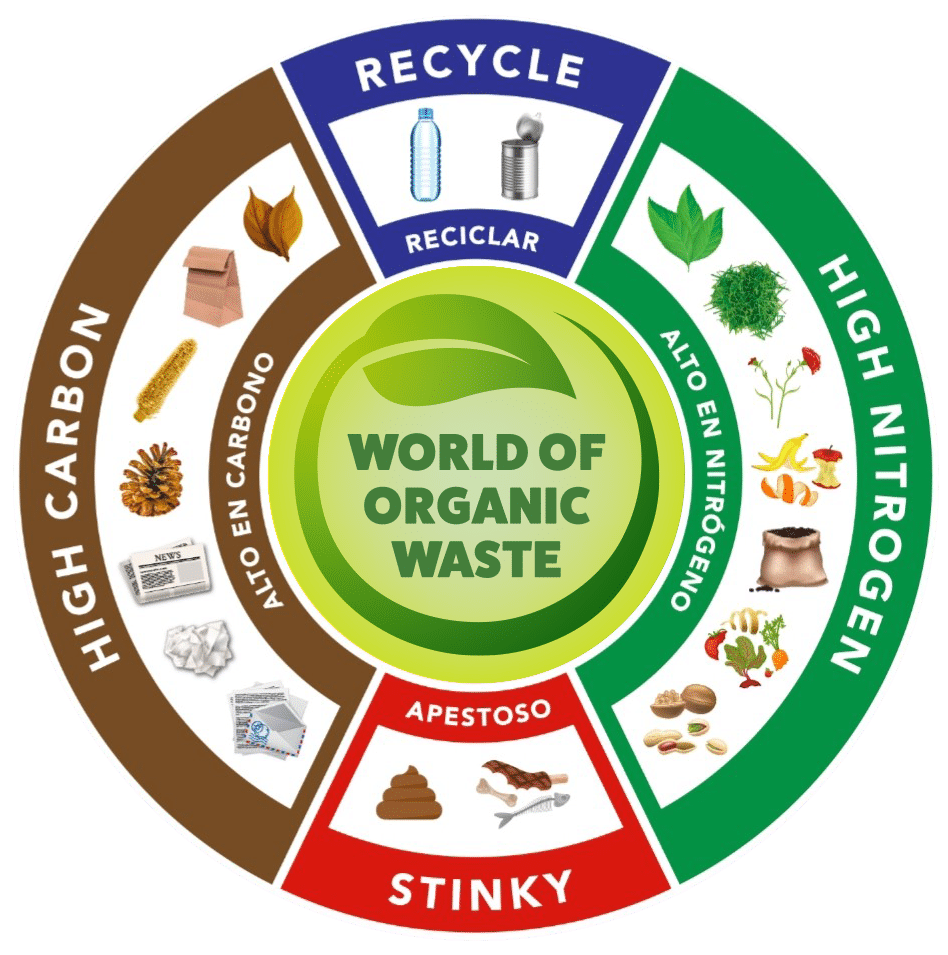

Welcome to the World of Organic Waste! Here you will explore the science of composting and organics, and understand your role in reducing organic waste in the waste stream.
Composting speeds up the natural process of decomposition, providing ideal conditions so that organic matter can break down more quickly. Throughout the interactive game play, you will gain an understanding of aerobic composting and vermicomposting using bacteria or worms as decomposers.
Understanding the Carbon-to-Nitrogen Ratio is importance to composting:
- All organic matter is made up of large amounts of carbon (C) combined with lesser amounts of nitrogen (N).
- The balance of these two elements in an organism is called the carbon-to-nitrogen ratio (C:N ratio).
- Browns = materials containing high amounts of carbon – paper, dead leaves, pinecones, corn cob.
- Greens = materials containing high amounts of nitrogen – fruit & vegetable scraps, coffee grounds, flowers, grass clippings.
- When creating compost, the compost recipe requires the correct proportion of carbon for energy and nitrogen for protein production.
- Your compost recipe should include at least 4 unique items (for example: grass clippings, coffee grounds, pinecones, and dead leaves).
- Your compost recipe should also include at least 10 items and you may have multiples of one type of item (for example: 3 corn cobs).


